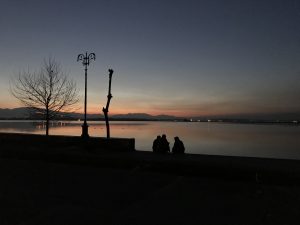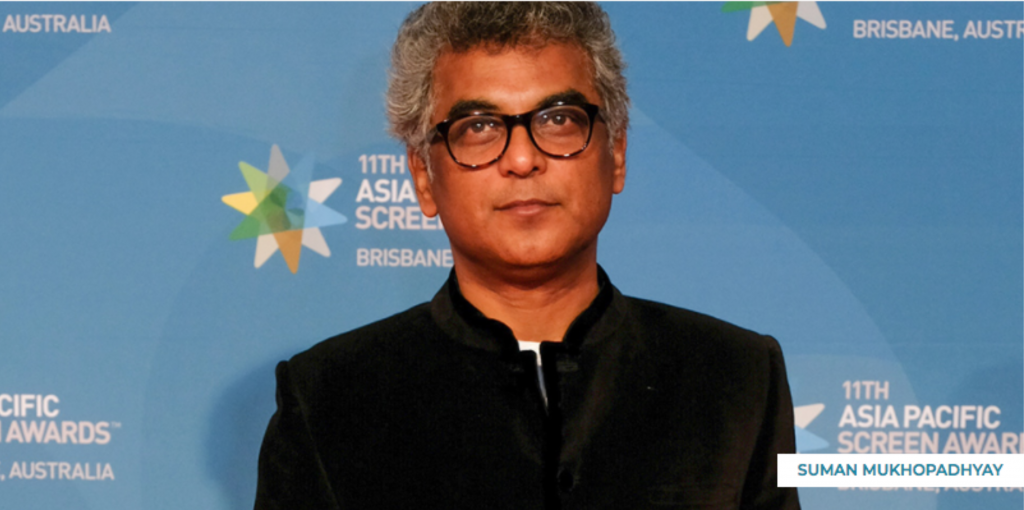Paradise in Flames – A Project Developing Under MPA-APSA Academy Film Fund

I believe, it is the most exciting and elating moment in a filmmaker and a screenwriter’s creative journey when one comes to point of starting a reconnaissance trip for a dream project. This became possible because of the MPA-APSA script development award that has been conferred on me in 2017.
The envisioned film’s setting is in Srinagar, Kashmir. It is the most talked about place because of the long grown deep political crisis enveloping this beautiful city.
Stories and anecdotes, myths and fables, real and fake news and rumors, bullets and stones have build up covert edifices of melancholy around this picturesque city.
My film – Paradise in Flames- looks at the lives of multiple players in the land that is Kashmir, the most militarized part of the world. In 2012, Kashmir had more Indian Soldiers than American Soldiers in Iraq and Afghanistan put together at the peak of the wars in the Middle East. Paradise in Flames is an attempt to look at the human cost of war and politics that marks the reality of Kashmir. It is about shattered dreams, abiding nightmares, fatalism, and trauma on both sides. The fact that innumerable families have lost their sons and daughters to the conflict — in the hands of the military and rival insurgent groups — is intrinsic to this story. A generation has gone missing in Kashmir. The movement’s greatest soldiers now are its children.
Paradise in Flames is about Kashmir’s children, their wounded psyches, and the continuity of their freedom struggle. It is also about Indian soldiers, their wounded psyches, and their sense of hopelessness in the face of a war without end.
This film is based on Abhishek Majumdar’s play The Djinns of Eidgah. The story follows the life and struggles of a young girl and her footballer brother against a backdrop of never-ending conflict. When I first read the play, I immediately got the cinematic hunch that I could make an adaptation and a film. And Abhishek gracefully agreed to give the permission. My film is more about the inner battles and the psychosis the people of Kashmir have been facing for generations.
I planned a trip to Srinagar in March 2018 with the playwright Abhishek Majumdar. The flight descended in the town unraveling a great view of the majestic Himalayas and a grandiose impression of the Srinagar valley. As our car rolled through the military and para-military infested city, the town punctured with sights of barbed wires and army bunkers, anti-Indian wall graffiti, I felt the anxiety and agitation in the air. A strange sense of alienation and rage is embedded on the faces of people.
And also, at the same time, it was overwhelming to notice the habitual ease of the commoners who are living in hostility and terror for ages, under the roving eyes of the state machinery and the automatic guns all around.
The life is going on in its own livid pace and daily chores on streets, markets, parks, offices, playgrounds and cemeteries. Who would say that this city was under curfew over a year?
I spoke to taxi drivers, shopkeepers, journalists, kids on the streets, the boatmen on Dal Lake, hotel managers. Met Tariq Ahmed Dar, who spent 12 years in Tihar jail, five of them with Afzal Guru and was released in 2017. Afzal Guru was a Kashmiri separatist, who was convicted and hanged by Government of India for his role in the 2001 Indian Parliament attack. I walked all around the beautiful Dal Lake, sailed on the shikara for hours talking to the vegetable vendors on boat and the sellers of famous Kashmiri saffron.
As the evening dawned on the valley conjoined with the mist of silence, I heard the solitary oar of the boatman raising mellifluous notes on water. Then slowly the mountains are drowned into monstrous silhouettes. The streets were empty, citizens whispered behind doors, leaving the city forlorn. Our taxi driver slowly got accustomed to me, found me trustworthy to start talking and even taking me to his home and introduce me to his wife and their 2-year-old kid. He narrated few stories of horrid experiences. I walked around the neighborhood through alleyways whose walls are marked with bullet marks. The houses are packed with people but an inexplicable reticence ruled the public and private domains. The cemetery of the martyrs in the middle of the city stands as a monument of great defiance and onerous lament. The seven days in Srinagar is just a beginning to type few rudimentary cinematic notes and initiate some scenes on my screenwriting software.
I hope to finish writing the first draft of the screenplay by the end of 2018.
This article first appeared on CreativeFirst.

